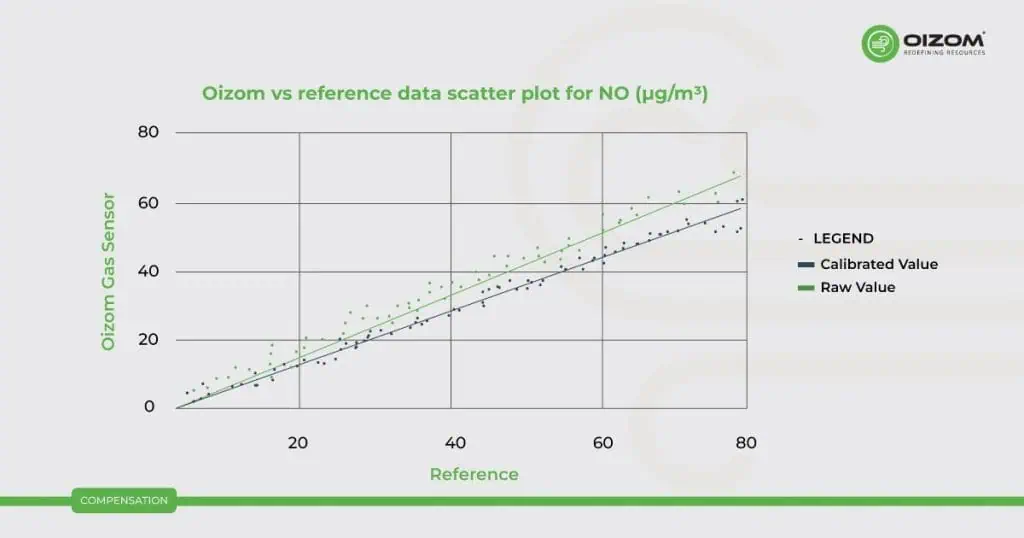Find the terms by letter
Compensation
Definition
Compensation refers to the adjustment or correction made to the sensor’s output readings to account for the influence of specific environmental factors, such as temperature and relative humidity, on the accuracy of its measurements. The primary purpose of compensation is to ensure that the sensor’s measurements accurately reflect the true concentration of air pollutants, even when these environmental factors vary.
Definition and Description
Compensation is a process involving the modification or rectification of a sensor’s output values to accommodate the impact of particular environmental conditions, like temperature and relative humidity, on the precision of its measurements. The central objective of compensation is to guarantee that the sensor’s readings remain faithful to the actual levels of air pollutants, even in the presence of fluctuating environmental variables.



